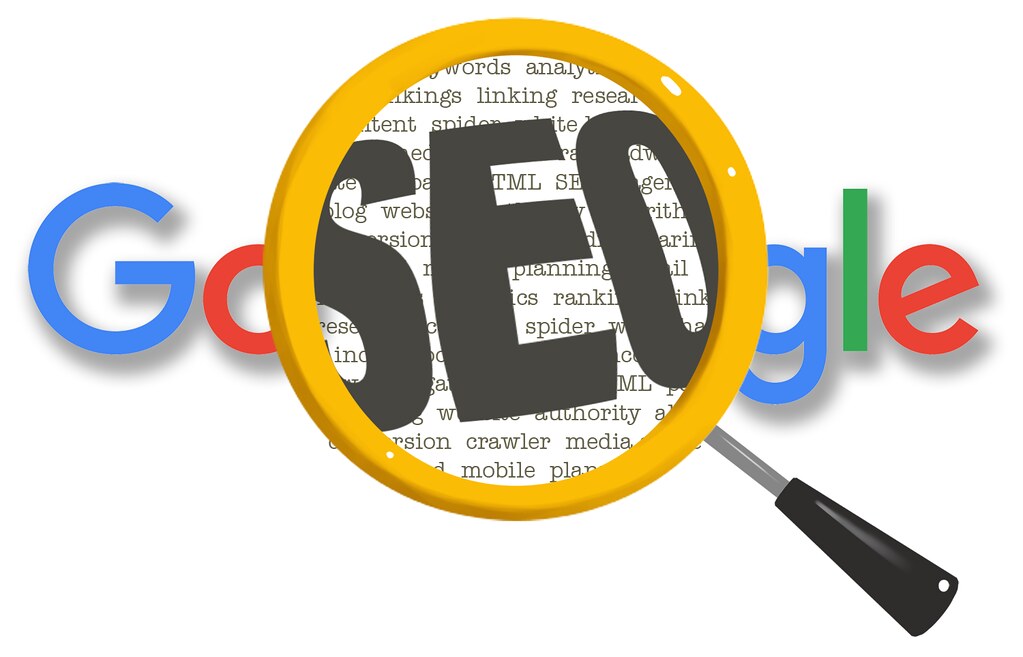
In the fast-paced world of digital marketing, where trends shift like sand in the wind, it’s not uncommon to hear bold statements like “SEO is dead.” Such claims stem from misunderstandings about the evolving nature of search engine optimization. However, SEO (Search Engine Optimization) continues to be a vital tool for driving organic traffic, increasing visibility, and building authority online. This article will delve into the reasons behind the recurring claims of SEO’s demise and highlight why SEO is far from obsolete—indeed, it is thriving as an essential component of modern marketing strategies.

The Myth: Why Some Think SEO Is Dead
1. Algorithm Updates Are Misunderstood
Search engines like Google routinely update their algorithms to improve user experience. Major updates, such as Google’s BERT or helpful content updates, focus on providing users with the most relevant and high-quality content. Unfortunately, these changes often lead to misconceptions. Some marketers struggle to keep up with the shifting requirements, leading them to declare SEO “dead.”
In truth, these updates emphasize content relevance, user intent, and website quality—reinforcing the value of ethical and strategic SEO practices.
2. Increased Competition from Paid Ads
The prominence of paid advertisements on search engine results pages (SERPs) has led to the belief that organic results are no longer significant. However, studies consistently show that users trust organic results more than paid ads. Organic traffic also delivers higher long-term ROI because it does not require ongoing payments to maintain visibility.
3. Social Media as a Traffic Source
Social media platforms like Instagram, TikTok, and Facebook have become significant traffic drivers, causing some to argue that they have replaced search engines. While social media marketing is an effective strategy, it works best as a complement to SEO. For example, businesses often use social media to generate awareness but rely on search engines to drive deeper engagement and conversions.
4. Voice Search and AI Answers
Voice search and AI-powered answers, such as those provided by virtual assistants like Alexa and Siri, have introduced new challenges. Critics claim that these technologies bypass traditional search results, rendering SEO irrelevant. In reality, optimizing for voice search and AI queries is an evolution of SEO—requiring a focus on conversational keywords and structured data to remain competitive.
The Reality: SEO Is Thriving and Adapting
1. Search Engines Are the Primary Gateway to Information
Despite the rise of social media and other technologies, search engines remain the most widely used tool for finding information. Google processes over 8.5 billion searches daily, demonstrating the enduring reliance on search engines to answer questions, discover products, and locate services.
Even in a competitive digital landscape, ranking high in organic search results is crucial. Businesses that prioritize SEO benefit from consistent, high-quality traffic that often leads to better conversions than paid ads or social media alone.
2. SEO Adapts to New Technologies
SEO is not static—it evolves alongside technological advancements. For instance:
- Mobile Optimization: As mobile searches surpass desktop usage, SEO strategies now prioritize responsive web design, fast loading times, and mobile-friendly content.
- Voice Search Optimization: The rise of voice search has prompted marketers to focus on long-tail, conversational keywords and schema markup to appear in featured snippets.
- AI and Machine Learning: SEO tools and strategies now leverage AI to analyze trends, predict keyword performance, and personalize content for target audiences.
These adaptations ensure that SEO remains relevant in the face of changing user behavior and technological advancements.
3. Content Marketing and SEO Are Inseparable
The phrase “content is king” has never been more accurate. High-quality content tailored to user intent is the cornerstone of modern SEO. By addressing the needs and questions of your audience, you improve your chances of ranking well in search results.
SEO ensures that your content reaches the right audience by optimizing factors like keyword usage, metadata, and readability. Furthermore, content and SEO feed into one another: great content improves rankings, and higher rankings drive traffic to your content.
4. Cost-Effectiveness and Long-Term Benefits
Compared to paid advertising, SEO offers unmatched long-term value. While PPC campaigns provide immediate visibility, they require continuous funding. SEO, on the other hand, builds a sustainable online presence over time. A well-optimized website can generate organic traffic for years with minimal ongoing investment.

The Key Pillars of Modern SEO
To thrive in today’s competitive online environment, businesses must focus on the following core elements of SEO:
1. Technical SEO
Technical SEO ensures that search engines can crawl and index your site effectively. This includes:
- Optimizing site speed.
- Using clean, efficient code.
- Implementing SSL certificates for security.
- Creating XML sitemaps and fixing broken links.
2. On-Page SEO
On-page SEO focuses on optimizing individual pages to rank higher and earn more relevant traffic. This involves:
- Conducting thorough keyword research and placing keywords strategically.
- Writing compelling, meta titles and descriptions.
- Structuring content with headings and subheadings for better readability.
3. Off-Page SEO
Off-page SEO revolves around building authority and trust through backlinks from reputable sites. Strategies include:
- Guest blogging.
- Reaching out for backlinks from industry leaders.
- Leveraging social media for content distribution.
4. User Experience (UX) and Core Web Vitals
Search engines prioritize websites that provide an excellent user experience. Core Web Vitals, which include metrics for loading speed, interactivity, and visual stability, play a crucial role in ranking.
Why Businesses Can’t Ignore SEO
- Organic Traffic Is Still King
Organic search drives 53% of website traffic, far surpassing social media and paid search. Neglecting SEO means missing out on a massive potential audience. - SEO Builds Trust and Credibility
A strong organic presence signals to users that your site is trustworthy and authoritative. When a business consistently appears in top search results, it fosters confidence among consumers. - Local SEO Drives In-Person Traffic
For brick-and-mortar businesses, local SEO is invaluable. By optimizing for local search terms and utilizing tools like Google Business Profile, businesses can attract nearby customers looking for immediate solutions. - It Levels the Playing Field
SEO allows small businesses to compete with larger corporations by targeting niche markets. A well-optimized site can outrank bigger players in specific, targeted search queries.

The Future of SEO
SEO is not dying—it’s evolving. The future will likely involve greater integration with AI, automation, and personalization. Marketers will need to adapt to trends like zero-click searches, where users find answers directly on the SERP without visiting a website.
Furthermore, visual and video search optimization will grow in importance. Platforms like YouTube, the second-largest search engine, demonstrate the rising demand for video content. Optimizing videos with transcripts, tags, and descriptions will become a standard part of SEO.
Conclusion
SEO is far from dead—it is alive and thriving, adapting to technological advancements and user behaviors. While the tactics may change, the core principles remain the same: delivering valuable, relevant content to users in a way that search engines understand and prioritize.
Businesses that embrace modern SEO strategies will continue to see significant returns, while those that ignore it risk falling behind. In a digital world where visibility equals success, SEO is not just relevant—it’s indispensable.








